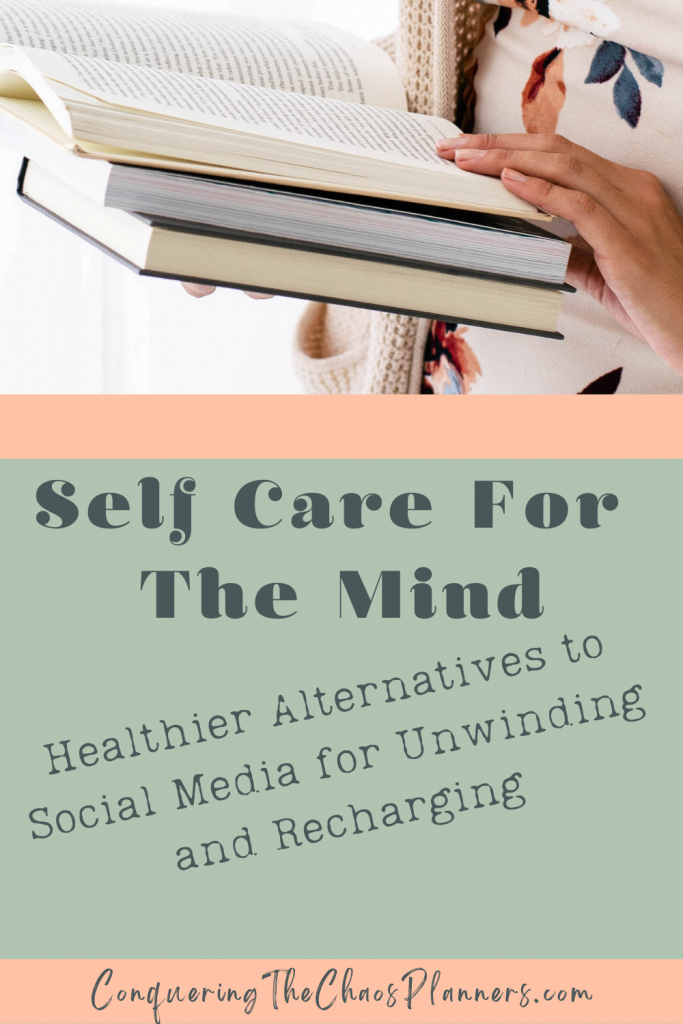
In today’s world, self care for the mind is often overlooked as we turn to social media or TV to unwind after a long day. While we may call it downtime and a chance to relax, these habits frequently leave us feeling drained, mentally cluttered, or anxious. It’s time to rethink how we recharge and prioritize real self-care for the mind.
True self-care involves practices that genuinely help us reset and rejuvenate. Activities that foster a deep sense of relaxation and mental clarity are far more beneficial than aimless scrolling through endless content. In this post, I’ll share healthier, more intentional alternatives to digital distractions that will truly help your mind recharge.
8 Best Self Care for the Mind Techniques
1. Mindful Breathing: The Antidote to Overstimulation
When we’re overwhelmed or stressed, our first instinct is often to reach for our phones and browse social media to disconnect. However, this often adds to our overstimulation rather than reducing it. Instead, try mindful breathing.
Mindful breathing is one of the simplest yet most effective techniques for calming the mind and relieving stress. By focusing on your breath, you ground yourself in the present moment, which helps clear mental clutter.
Here’s a quick mindful breathing exercise:
1. Sit comfortably, close your eyes, and inhale slowly through your nose for four seconds.
2. Hold your breath for four seconds.
3. Exhale slowly through your mouth for four seconds.
4. Repeat this cycle for 5-10 minutes.
This practice will help you calm your mind, improve your focus, and find peace, offering a much-needed break from digital distractions.
2. Journaling for Mental Clarity
Social media can often leave us comparing ourselves to others or feeling like we’re missing out. Instead of passively consuming content, grab a notebook and write down your thoughts. Journaling offers a more productive way to process emotions and the events of the day.
Whether you jot down your feelings, list things you’re grateful for, or reflect on specific moments, journaling can help organize thoughts and reduce overwhelm. Start small—just a few sentences or bullet points each day can work wonders. The act of putting your thoughts on paper is therapeutic and can provide clarity that mindlessly scrolling simply cannot.
3. Unplugging for True Relaxation
Social media may seem like a way to relax, but it often keeps our minds engaged and overstimulated. Constant digital input doesn’t allow for the mental space we need to genuinely unwind. One of the best ways to recharge is to disconnect completely.
Start by setting small limits—perhaps a few hours without your phone in the evening or designating one day a week for a digital detox. During this time, engage in activities that genuinely relax you, such as reading, enjoying a hobby, or spending time with loved ones. The peace and mental clarity you gain from disconnecting far surpass the temporary relief of checking your phone.
4. Meditation and Visualization for Mental Rejuvenation
If you often find yourself zoning out with your phone or TV, consider trying meditation as a healthier way to unwind. Meditation helps quiet mental chatter, reduces anxiety, and promotes true relaxation, offering deeper benefits than digital distractions.
You don’t need to be an expert to meditate. Start with just five minutes a day:
- Find a quiet spot, sit comfortably, and close your eyes.
2. Focus on your breath, noticing each inhale and exhale.
3. If your mind wanders, gently bring your focus back to your breath.
You can also add visualization. Imagine a peaceful place like a beach or forest, and let your mind rest there. This mental vacation is far more refreshing than getting lost in a sea of digital content.

5. Physical Movement: A Better Recharge Than Sitting Idle
Relaxation doesn’t always mean sitting still—movement can be one of the best ways to recharge your mind. Physical activity releases endorphins, reduces stress, and promotes mental clarity in a way that sitting on the couch with your phone doesn’t.
You don’t need intense exercise to feel the benefits; simple activities like walking, stretching, or yoga can make a big difference in your mental state. Even just 10-15 minutes of movement can lift your mood and increase focus, making it a better way to recharge than sitting with a screen.
6. Creative Outlets: A More Fulfilling Escape
When we’re tired, we often reach for social media as a quick escape, but creative pursuits bring much more satisfaction. Whether you’re into painting, writing, knitting, or playing music, creative activities let you unwind while expressing yourself.
Creative outlets can give you a confidence boost and a sense of achievement, which is different from social media that often makes us feel inadequate or compare ourselves to others. Find an activity that gets you excited and make time for it daily – it’s a powerful way to unwind your mind in a positive and productive way.
7. Connect with Nature
Many of us spend hours glued to our screens, but nature offers a far more effective way to rejuvenate. Stepping outside for a breath of fresh air can do wonders for your mental health.
Spending time in nature—whether it’s walking in a park, sitting by water, or just observing the sky—has a calming effect that helps reduce stress and improve clarity. Whenever you feel the urge to grab your phone for entertainment, try heading outside instead. Even a brief connection with nature can provide mental rejuvenation that no digital content can.
8. Gratitude Practice: A Healthier Source of Positivity
Social media often leads us to seek external validation—through likes, comments, or followers. This pursuit can take a toll on our mental well-being. Instead of seeking approval online, try focusing inward by practicing gratitude.
A gratitude practice helps shift your attention to the positive aspects of your life. Each day, write down three things you’re grateful for—whether they’re small pleasures like a warm cup of tea or significant blessings like good health. This shift in perspective creates long-lasting positivity, offering mental clarity and contentment that social media cannot provide.
Conclusion: Prioritize Self-Care for the Mind
Ultimately, self-care for the mind is about finding healthier, more intentional ways to unwind and recharge. Digital entertainment might provide a quick escape, but it doesn’t offer the deep relaxation we truly need.
Incorporating mindful breathing, journaling, meditation, movement, creativity, nature, and gratitude into your routine allows you to care for your mind in a way that truly brings peace and clarity. By choosing these practices, you can navigate life with a more refreshed, focused, and peaceful mindset.
So, next time you want to unwind, take a moment before reaching for your phone. Instead, try one of these alternatives and notice how much more genuinely rested your mind feels after real self-care.
